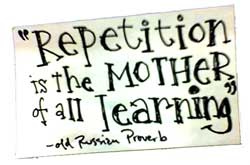Timothy Joseph Wellmann
Interview paper
8/26/2015
I recently had the opportunity to interview Scotty, who I sit next to in my English 121 class. Scotty is a 26 year old nanny, and also currently studying graphic design. These are some of the interesting things I learned about here during our short interview.
To start our interview I asked some personal questions, and this is what I discovered. she is originally from Oklahoma. while she was there she attended a private school she wasn't too fond of. She said she was the quieter type in high school. Later on when she started college she was studying in the medical field, but as that began to progress on she found herself beginning to lose interest and starting to become burnt out. After that is when she started to pursue graphic design. She told me she was a little nervous at first because she didn't have any background working in programs like photoshop or adobe, and other programs such as those. So to start familiarizing herself with them she purchased photoshop and began trying to figure it out and learning for herself. Now she is in her final year and is looking to either go to a university to get her bachelor's, or locking down an internship down in Denver.
After that we moved to the subject of our English 121 class and just about writing in general. these are some of the things I learned. Scotty has had this class in the past, but she dropped out. The reason for this was she had a professor she didn't like and didn't really connect with. After that I had told her I have taken this class before as well. But I took it as an AP class back in highschool, But chose not to pay for the college credit with it because I didn't know what I was going to do after high school. when asked about the class as a subject she told me how it is not her strongest subject. she responded with “When I’m writing I have a hard time showing what I’m trying to explain. I’m better in Math and science type classes.” Which I thought was funny because I explained to her that those are my two least favorite classes, and probably the ones I’m the worst at. I have personally always been better at history and english. When asked about her goal for this class. She said she wants to learn how to become a better writer, and also to just get through it since it has given her problems in the past. She also told me about how she doesn’t do too much writing in her day to day life. Her writing usually consists of the daily E-mails, texts, FaceBook messages, and Tweets. She is a big list maker though. Being a Nanny she has to keep organized with the things the children need, for instance groceries.
To conclude my interview we just got into some light conversation. With one subject including skiing. The conversation came up after I told her I worked at Winter park this previous season in the rental shop. She then told me that was her go to place to ski. when I asked her how good she was. She told me that this was only her second season, but she could now do blues. She then told me the struggle of riding with people who are way better than her, and how they have to wait up on her most of the time.
After that our interview was over, and that is what I have learned about Scotty
-Timothy Wellmann
